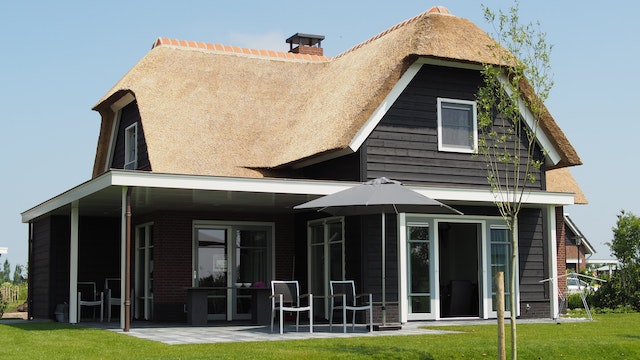8 Tips for Moving to a Rural Area

People have been moving to cities for a long time now, and in some corners of the world, rural life is rapidly declining — so much so, in fact, that you can get grants to move to rural areas.
But in other corners of the world, there has been something of a fightback. People are beginning to understand that while cities do offer a lot, there are a lot of drawbacks that you need to put up with.
There is magic in the rural way of life! But of course, it’s not a matter of just packing up your stuff and moving there. The difference from urban to rural life is too big for that.
To make sure that your move is successful, we’ve put together some useful tips below.
#1 Find the Right Property
Now, don’t get us wrong — your property is important no matter where you are. But when you live in a rural area, it’s more important than if you live in, say, a city.
If you live in New York, you spend most of your time out of doors, since there’s so much to do. In rural areas, where life is slower, you’ll find that your home is your kingdom.
So it better be a place where you want to spend some time.
#2 Understand the Area
But of course, while you’ll spend a lot of time at home, it’s not like you’ll never be out and about. You will be. And here’s the thing about rural areas: the community counts for a lot.
There’s a bigger sense of community than there are larger cities. In some places, you’d know everyone in town. Because of this, you’ll want to do your research and ensure that it’s a community that you can get on board with.
What are the people like? What’s the atmosphere? Also, you’ll need to look into the practicalities of the town, such as what times the shops are open, the nearest hospital, and so on.
#3 Logistical Matters
One thing that many people in urban areas take for granted is just how easy it is to get around. Because they’re used so frequently, the roads are kept clear and in tip-top condition; it is rare that a road is closed for any significant period of time.
And if you don’t want to drive, then no bother — there are public transport options, too. This is not the case in rural areas. There, it’s imperative that you have a vehicle. It’s just not possible to function without one.
And it’s not like any old car will do; you need a car that can handle the extreme weather and more difficult conditions if you’re going to live well out there.
#4 Moving Your Stuff
As with any move, you’ll need to think about how you’re going to get your stuff from your current home to your new one in more rural territories.
Because of the distances that are likely involved, it’s recommended that you hire a long-haul moving company to help you if you have a lot of stuff.
If you don’t, then you can probably rent a U-Haul truck and do it yourself.

#5 Make it Fun
It’s true that there are some downsides to rural life (more on them later), but don’t forget that, by moving to a more remote area, you have a lot of capacity for fun.
Indeed, people often choose to move to rural zones not necessarily because it’s more tranquil and calm, but because of the fun possibilities that it provides. If you’re surrounded by nature, then you can always do exciting things.
Take a look at the outdoor recreational activities available in your new area, and get the equipment (or in the case of things like skiing, take lessons). If you’re located on the water, then you could get a boat and get a dock installed by Summerset Marine Construction — it’ll transform your enjoyment of your new home.
There are usually fewer restrictions as to what you can do on your property when it’s in a quieter spot, too, so think about any home or garden additions you could install.
#6 New Threats
Of course, there are a few things that can negatively affect your enjoyment of living in more natural areas. Nature can be a lot of fun, but it’s not all good.
One issue you might have to contend with is that of pests. They’re more common in rural areas. There are plenty of ways to keep them away from your home, but it might involve a little trial and error.
Also, flooding and other weather related issues are more frequent out there, too. There could be times when you’re trying to cope with an energy blackout, for instance.
It’s not like these things are always a big issue (a brief power outage can be fun), but they do sometimes get into dangerous territories, especially if you’re in a flooded area.
As such, you’ll want to make sure that you’re fit and healthy to handle these problems before you make the move.
#7 What are the Downsides?
Those threats outlined above are specific downsides, but there are other, more general issues that people who move to rural areas need to contend with.
For example, while people often say that they want to be away from the noise and lights of the big city, sometimes the move to a virtually silent part of the world can be a little disconcerting.
You might also find it a little tough being away from culture, or from things like the airport or hospitals. These are unlikely to affect you on a daily basis, but they are important to be aware of.
#8 Give it Time
Finally, remember to give it time. It can take months to get used to a change when you move across the street; it’s a different experience when you’re fundamentally changing your environment.
Most people who make the move end up loving it though — it just takes time. Stay patient, do your best, and eventually, you’ll love it.
Are you planning to move to a rural area?






